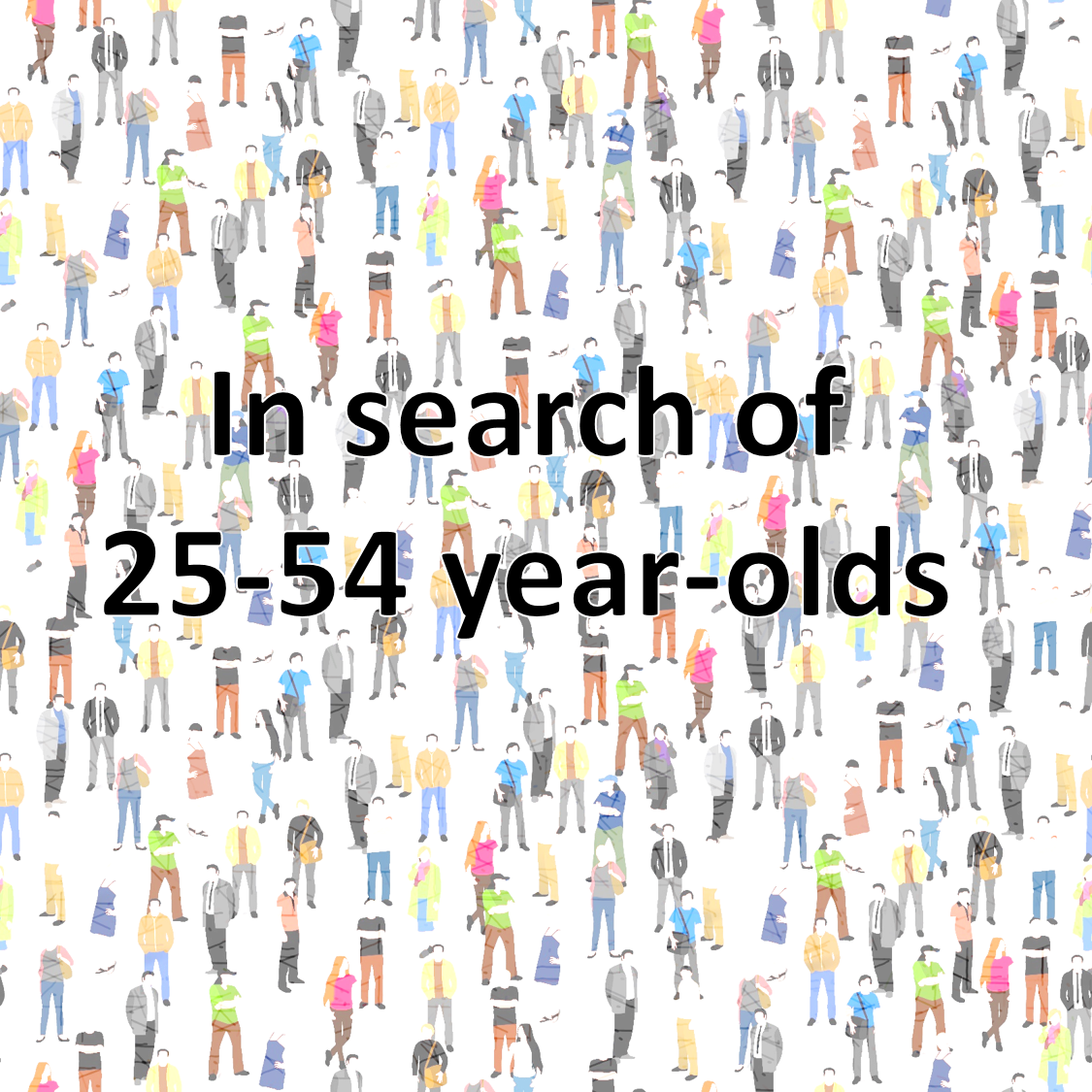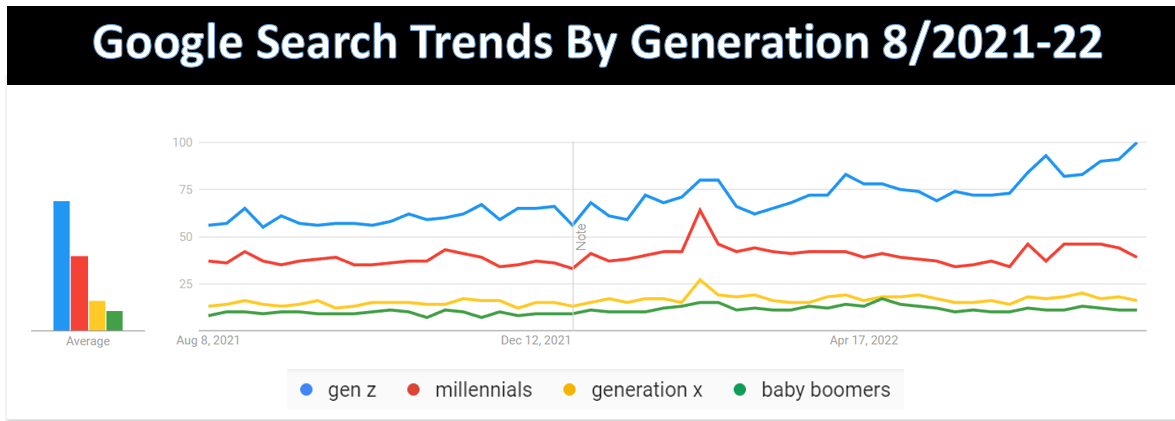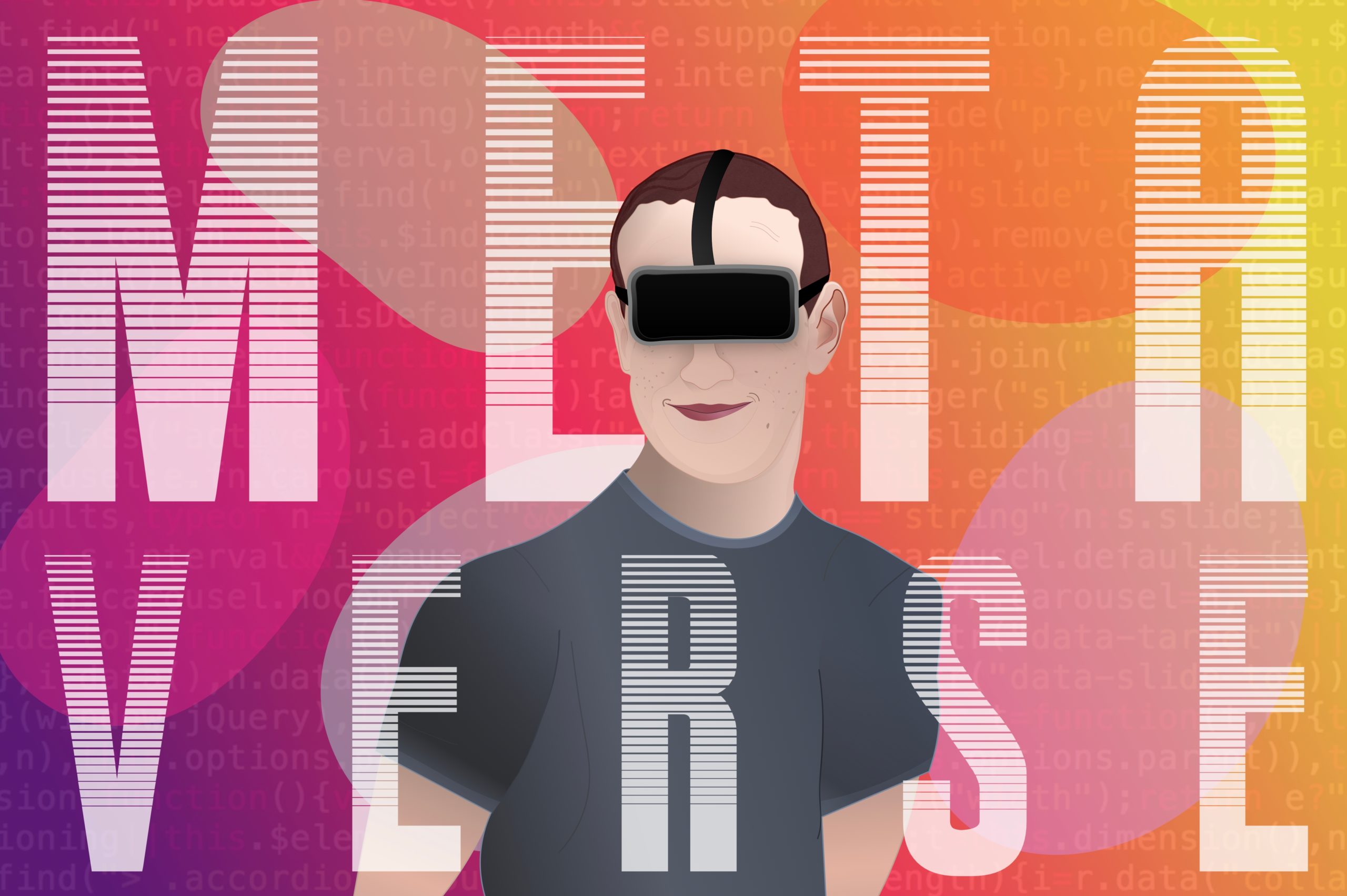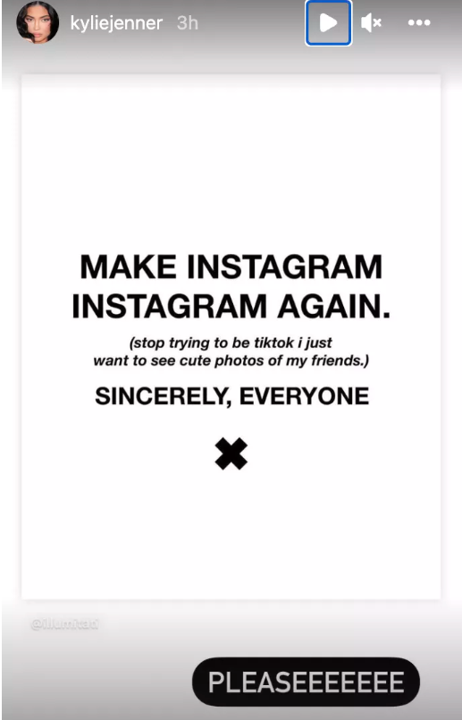
Yesterday’s Gen Z post generated considerable feedback about broadcast radio’s planned estrangement from teens and college kids – those in their formative years when it comes to pretty much everything – including how they spend their time and entertain themselves.
If we think the last few years of the pandemic and the maelstrom of change – social, racial, climate, political – have taken their toll on us adults, imagine the impact they’ve had on Gen Z.
If you’re a parent, there’s nothing I can tell you that you probably don’t already know. The impact of the aforementioned wave of change has rocked our kids – their mental health, their educations, and for those emerging from school, their attitudes about their careers and the workplace. The work from home megatrend has changed the nature of jobs and employment, and with it, commuting patterns, offices, and cities themselves. But it has been led by these Z’s, a generation that will redefine the whole enchilada, just as Boomers did when they were teens and twentysomethings back in the 60’s and 70’s.
Last week, I got one of those truly nice Facebook posts from former Chicago radio pro, James VanOsdol. If you’ve had the pleasure of working with him, James was one of the early modern rockers. James now works for Accenture, and is an accomplished podcaster. And he still has “a thing” for radio.
Here’s his post:
As you might imagine, 50+ comments later, the solutions and prescriptions run the gamut. But it was JVO’s comment about the iceberg that made me both smile and wince. I’ve become a pretty good radio sailor up on the crow’s next, seeing what’s coming, and in some cases, explaining how to avoid impending doom. There’s some benefit to spotting those trends. And over the years, Jacobs Media has pioneered research studies that have done just that.
Many of you remember “The Bedroom Project” and “Goin’ Mobile,” ethnographic studies we conducted for Arbitron, both under the guidance of Dr. Ed Cohen. Later, it was “The Millennial Project” for PRPD.
But today’s Gen Z’s?
Full disclosure: I don’t have a clue, and don’t pretend to.
Chances are, neither do most of you, even if there’s one or two sitting at the breakfast table with you right now.
If you’ve been in radio for five minutes, five years, or five decades, the odds are excellent you may have multiformat experience, none of which has had anything to do with entertaining and appealing to Gen Z.
Radio’s 25-54 year-old obsession aside, the fact radio has conceded the Gen Z opportunity is a big miss. Most of us have spent our entire careers chasing this 30-year age cell – to the exclusion of everyone else.
age cell – to the exclusion of everyone else.
And that includes teens. Why? Because there’s no money there.
Au contraire. Today’s marketers might be to differ with you.
And of all the existential threats facing radio broadcasters, it is very likely going to be the silver stake. Radio missed the boat with big segments of Millennials. It hasn’t even boarded that boat with Z’s, a generation that will be bigger than Boomers. They are also more diverse than the demographic groups that have come before them, posing even more challenges – but more opportunities – to marketers who connect and engage with them.
But with Gen Z’s, it’s not just about their heft and their numbers. It’s about their influence, and the ways in which they are already recasting everything – our norms, our media, our politics, our society. They are coming of age, and their impact will be felt.
I went into Google Trends (a great tool by the way) to see how “search” for the various generations has bobbed and weaved from just one year ago. Here’s what I found:

This may just be one dimension, but it’s an important one because it speaks to influence and “yank.” Gen Z’s are the movers and the shakers. Millennials, while still a force are leveling out. And Xers and Boomers? You can see the yellow and green line trajectories for yourself. This is where broadcast radio lives – by choice (and I mercifully left out the gray line – the Silent/Greatest generation – those born before 1946).
I’ve heard many broadcasters opine over the years that when those teens got out of school, joined the workforce, and became so-called responsible adults, they’d fall into line: buy homes, start families, and start listening to the radio to and from work. Maybe that’s the way it used to work, but that was before Twitch, TikTok, Spotify, connected cars, and smartphones.
Today’s Gen Z’s are quite different than even those just a few years their senior, in much the same way those beboppers from the 1950’s had virtually nothing in common with the Baby Booomer wave that followed them.
 Take social media for example. Gen Z’s are redefining the landscape, freaking out the incumbent social platforms – Facebook, Instagram, Twitter, and the rest. The rapid rise of TikTok hasn’t just ushered in a new form of entertainment, information, and marketing – it is reshaping the ways in which we socialize.
Take social media for example. Gen Z’s are redefining the landscape, freaking out the incumbent social platforms – Facebook, Instagram, Twitter, and the rest. The rapid rise of TikTok hasn’t just ushered in a new form of entertainment, information, and marketing – it is reshaping the ways in which we socialize.
Do you think TikTok has Mark Zuckerberg’s attention? He may be all-in on the metaverse, but in the world of the here and now, TikTok is changing the game IRL.
A great story last month in Axios (purchased yesterday by Cox) by Sara Fischer does a nice job framing the new social turf. In “Gen Z shapes new social media era,” she quotes a great Pew Research Center study that shows declining social media use among this emergent generation.
The chart below vividly shows the trendlines, noting how 18-29s are rejecting the old “social standards”:
“The social hierarchies created by decades of public “like” counts, and the noise level generated by clickbait posts and engagement lures, have worn on Gen Z. And constant pivots by social media giants have eroded younger users’ trust.”
The impact of TikTok has pushed most of the other social media platforms to pivot to a shortform video format (Facebook Reels, etc.). Not only are they trying to copy TikTok, but they’re changing the essence of why consumers used these platforms in the first place.
Kylie Jenner’s plea to Instagram went viral, as she clearly spoke for many of her compadres on that Meta-owned site:

The redefinition by Gen Z is sweeping, and every media and tech brand is being impacted. Last month, Business Insider’s Samantha Delouya wrote a story with this turbulent headline:
In so many ways, Z’s are different than the rest of us.
But they also share many of the same desires as everyone else. They want to be entertained. And informed. But differently than their older sibs, parents and grandparents.
The Cox purchase of Axios yesterday is a bold move by a newspaper company that is now dedicated to serving up local news differently than its competitors. As Axios CEO Jim VandeHei explained:
“We have found our kindred spirit for creating a great, trusted, consequential media company that can outlast us all. Our shared ambitions should be clear: to spread clinical, nonpartisan, trusted journalism to as many cities and as many topics as fast as possible.”
Media visionary Lee Abrams has been working on a similar quest the past few years, crafting an information product for young people called “News Movie.”
The fact that virtually every radio broadcaster has all but thrown in the towel on Gen Z could, in fact, prove to be “the iceberg.”
And yet, we’ve seen young people embrace old media (turntables), old music (Classic Rock), and other retro artifacts from the past. There was a time when radio would have researched the opportunity, and young programmers would hack their way to solutions. That was the era when virtually every “creative” in radio was in their twenties, and much more attuned to what was happening in real time.
Instead, most radio companies are either going outside the broadcast walls to find new sources of money, rather than discovering what actually works with this incredibly fertile generation of consumers.
Iceberg or opportunity? What’s it going to be?
Yesterday’s post, “Why Gen Z Is A Non-Starter For Radio Broadcasters” can be accessed here.
You can talk to Lee Abrams about News Movie (and anything else) here.
- Media And Technology In 2025: Believe It Or Not! - April 18, 2025
- In Radio, You Just Never Know - April 17, 2025
- The Secret To Making A Great Podcast (And Great Radio) - April 16, 2025




This:
“Instead, most radio companies are either going outside the broadcast walls to find new sources of money, rather than discovering what actually works with this incredibly fertile generation of consumers.”
Look around at all the other radio blogs composed by the “top minds in radio” and all you’ll see are the same old “rah-rah” coach up the sales team tactics repeated ad-nauseam – insistence on finding more creative ways to sell the same outdated product.
Although, finding alternative sources of money is something that should be encouraged as well. There’s a reason all the major corporations in various industries are venturing into subscription-based models.
But the clock is ticking. When the audience doesn’t want the product, you need to change the product. And no, those decades-old radio gimmicks and branding strategies are not going to work anymore. Leave them in the dusty closet. The world isn’t as naive as it used to be.
I appreciate the comment, Jon. Thanks for reading the blog.
For radio, it might help to remember that one of TikTok’s predecessor platforms was the explicitly music-focused musical.ly (https://en.wikipedia.org/wiki/Musical.ly).
Something major is missing in these discussions. In the late 1960s there were two major shifts in how the music business worked. One was the transition from people buying singles to people buying albums. The second, less understood shift from bottom-up record promotion to a top-down approach. By bottom-up, I mean airplay based on sales in local record stores. Stations called the stores and played whatever local people were actually buying. Of course, there was payola and airplay in other markets as an influence, but a new title needed to quickly prove its worth by local sales or it was taken off the air in a very few days. Local artists could get airplay if they could generate local sales. The best of these went on to become the stars of the 1970s and ’80s.
Album sales were something new. They sold to men at least as well as to women and were not primarily dance music the way singles had been. Madison Avenue piped in with market research that started dictating music programming. This is what I call top-down record promotion. Success as a local artist no longer led to airplay and venues turned to disco or to hobbyist artists paying to play.
So here we are, back to having a singles market with few experienced young artists and with Madison Avenue still trying to predict what will draw advertisers. Yes, young listeners are no longer engaged. Why should they be?
I think there are unprecedented opportunities for radio provided it is done using a local listener-fueled bottom-up approach.
It’s certainly something that hasn’t been tried. Would love to see some stations give it a try. (The proverbial “under-performing” signals.) If one or two get make a go of it, others will follow.
Bob, see my response to Bob Bellin. I believe broadcasters have a shot here, if the product was actually reflective of what they want. I appreciate the comment.
I’ve been wrestling with this since yesterday’s blog. The two big questions are: 1) What would a radio station that targeted Gen Z sound like? and 2) Would they listen to it on broadcast radio even if the programming hit the mark?
I asked a group of about 20 college students, “who owns a radio that isn’t attached to a car” and not one hand went up. That was in 2009 and addressed to college radio station volunteers, so its been a long time since anyone under 25 has had much interest in broadcast radio.
The answer to this question might be simpler than it sounds. Start by getting some creative Gen Z people to design some options focused on them – but with some grown up tools like research and marketing. Most radio companies have translators they can try this out on – and if anything shows promise, most of those radio companies have some full market station that hasn’t done better than a 2.5 in years that they can use to see if a new approach can work commercially.
My gut is that the radio ship has sailed for Gen Z, but my gut might be wrong and its worth trying to find out.
“Would they listen to it on broadcast radio even if the programming hit the mark?”
This is certainly a problem IF your station is only limited to its AM/FM signal.
But what if the show existed on a grander media scale… live, interactive streaming media and the audio was exported to the AM/FM signal and only 1 of many conduits to experience the show?
Sort of like playing stereo songs on a mono signal. Let’s face it, broadcast radio is outdated technology. I believe there’s a chance to keep it relevant if it can be an avenue of obtaining content people want.
The problem is that too many people remain dedicated to their “safe zone” of playing repetitive music formats because that’s all they’ve known for like 30 years.
I am in agreement with most of your points, Bob. And while it’s easy to conclude that teens are gone, as you point out, most were never “here” to begin with. If we actually put something out there better/different/more interesting than Spotify/TikTok/Twitch, why wouldn’t they check it out?
I’m one of the older members of Gen Z, and although I don’t claim to speak for my entire generation, I can tell you what I’d personally like to see in a radio format.
When I listen to the music of my choice – whether it’s on a streaming service or from FLAC files stored on my phone – it’s to hear some familiar favourites. But when I listen to a curated music experience – eg. the radio – I want to be exposed to unfamiliar songs so I can discover interesting new artists and add them to my playlists.
This is why I usually listen to non-commercial radio, and stream stations such as KEXP, BBC Radio 6 Music, ABC Double J, etc. I don’t want to hear the same handful of songs over and over again on the airwaves. That’s what my own collection is for!
Granted, I sometimes tune into the local commercial FM stations whilst driving, but I probably listen for no more than a few hours each week. It’s sometimes interesting to see which songs are popular on the airwaves, but again, the repetition really gets to me. I can’t wait to upgrade my (ancient) car and get a stereo with Bluetooth and USB connectivity.
I may be an older member of the so-called “boomer” cohort, Andrew, but I second everything you said. Perhaps the purported differences of generational tastes are more hat than cattle.
I felt the same way, John.
I enjoyed your response, Andrew. I wish there more of you out there. You’ve made some adventuresome radio choices. As an industry, radio needs to do SOME research on teens. We just might realize an opportunity, if we listened for a change. Thanks for commenting.
In all of the comments I’ve read about connecting radio with youth everything seems to revolve around music. Yet, a cursory glance at the talk side of radio shows nothing aimed at them – and I’m not speaking of the podcasting style of talk but a revamping of the host/listener interaction that radio gives far Right and Religious groups.
Music can be found anywhere while youth oriented call-in talk programs are hard to find over the air or online.
It seems odd that industry execs forget Bob Pittman was 23 when given the reigns of New York’s top station, and that most all of us were given some responsibility to create programming when in our 20s (back in the 1970s).
It’s long past time to let youth run the show again. Older execs need to step out of the way and let people who understand what’s available across all media call the shots. They’ll tie it together for radio if given the chance.
Great comment, Ken. Talk might, in fact, be an angle. Regarding the Pittman comment, you are spot-on. In fact, radio in the 70’s and 80’s was filled with twentysomething programmers. And amazingly, radio was a pretty creative and fascinating medium back then.
As was the record business in the ’60s and ’70s!